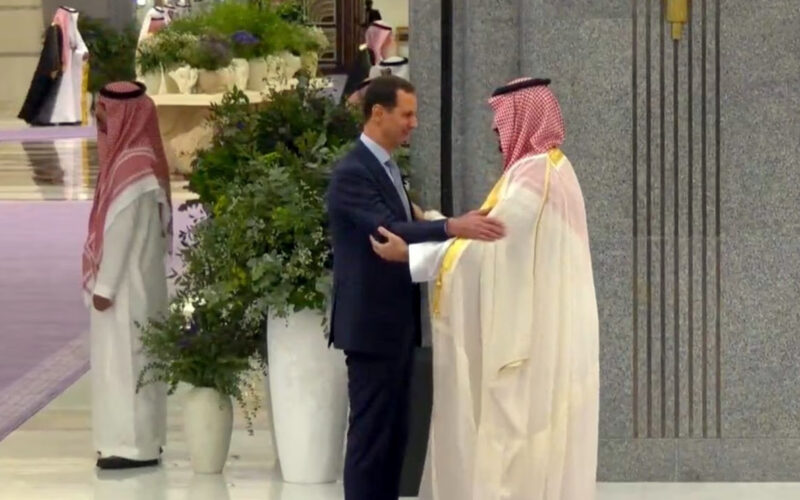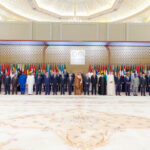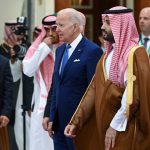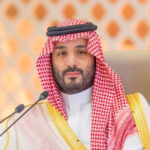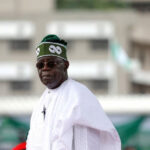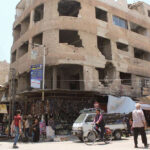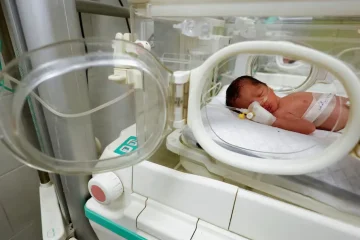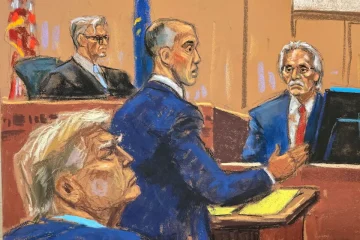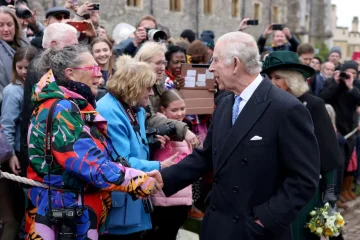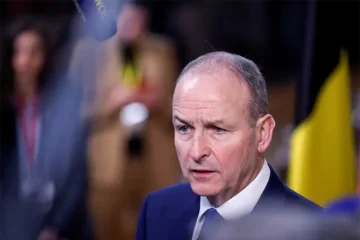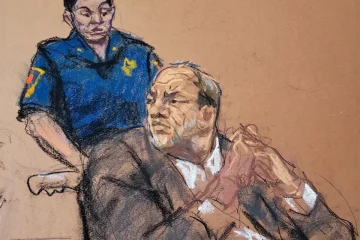SYRIAN President Bashar al-Assad was given a warm welcome at an Arab summit, winning a hug from Saudi Arabia’s Crown Prince at a meeting of leaders who had shunned him for years, in a policy shift opposed by the U.S. and other Western powers.
Saudi Crown Prince Mohammed bin Salman shook hands with a beaming Assad as the summit got underway in Jeddah, turning the page on enmity towards a leader who drew on support from Shi’ite Iran and Russia to beat back his foes in Syria’s civil war.
The summit showcased redoubled Saudi Arabia’s efforts to exercise sway on the global stage, with Ukrainian President Volodymyr Zelenskiy in attendance and Crown Prince Mohammed restating Riyadh’s readiness to mediate in the war with Russia.
Oil powerhouse Saudi Arabia, once heavily influenced by the United States, has taken the diplomatic lead in the Arab world in the past year, re-establishing ties with Iran, welcoming Syria back to the fold, and meditating in the Sudan conflict.
With many Arab states hoping Assad will now take steps to distance Syria from Shi’ite Iran, Assad said the country’s “past, present, and future is Arabism”, but without mentioning Tehran – for decades a close Syrian ally.
In an apparent swipe at Turkish President Tayyip Erdogan, who has backed Syrian rebels and sent Turkish forces into swathes of northern Syria, Assad noted the “danger of expansionist Ottoman thought”, describing it as influenced by the Muslim Brotherhood – an Islamist group seen as a foe by Damascus and many other Arab states.
Crown Prince Mohammed said he hoped Syria’s “return to the Arab League leads to the end of its crisis,” 12 years after Arab states suspended Syria as it descended into a civil war that has killed more than 350,000 people.
Saudi Arabia would “not allow our region to turn into a field of conflicts”, he said, saying the page had been turned on “painful years of struggle”.
Washington has objected to any steps towards normalisation with Assad, saying there must first be progress towards a political solution to the conflict.
“The Americans are dismayed. We (Gulf states) are people living in this region, we’re trying to solve our problems as much as we can with the tools available to us in our hands,” said a Gulf source close to government circles.
A Gulf analyst told Reuters that Syria risked becoming a subsidiary of Iran, and asked: “Do we want Syria to be less Arab and more Iranian, or … to come back to the Arab fold?”
Having welcomed back Assad, Arab states also want him to curb a flourishing Syrian trade in narcotics, which are being produced in Syria and smuggled across the region.
UKRAINE
Addressing the summit, Zelenskiy, who wants to build support for Kyiv’s battle against Russian invaders, asked the delegates to support Ukraine’s formula for peace and thanked Riyadh for its role in mediating a prisoner release last year.
In a letter to the summit, President Vladimir Putin said Russia attached “great importance to the development of friendly relations and constructive partnership” with regional states.
Gulf states have tried to remain neutral in the Ukraine conflict despite Western pressure on Gulf oil producers to help isolate Russia, a fellow OPEC+ member.
Arab leaders attending included Qatari Emir Sheikh Tamim bin Hamad al-Thani, who said in 2018 the region could not tolerate “a war criminal” like Assad. Qatar has reluctantly withdrawn its opposition to Riyadh’s move to readmit Syria.
The Syrian state news agency said Sheikh Tamim shook hands with Assad, though Qatari media did not confirm that and Sheikh Tamim abruptly left the gathering as the speeches were getting underway. A regional official said the two did not speak.
Salem Al-Meslit, a prominent figure in the Syrian political opposition to Assad, wrote on Twitter that his attendance was a “free reward for a war criminal”.
The war has shattered Syria’s economy, demolishing infrastructure, cities and factories. Assad could benefit from Gulf investment in his country, though U.S. sanctions complicate any commercial ties with Damascus.
The Arab rapprochement with Assad gained momentum after China negotiated an agreement in March that saw Riyadh resume diplomatic ties with Iran, which with Russia has helped Assad defeat Sunni rebels and regain control of some major cities.
A large swathe of Syria, however, remains under Turkish-backed rebels and radical Islamist groups as well as a U.S.-backed Kurdish militia.
Finding a political solution to the 12-year-old conflict remains a big dilemma for Arab and Western countries.
According to UNHCR since 2011, more than 14 million Syrians have fled their homes, and about 6.8 million remain displaced in their own country, where 90% of the population live below the poverty line. About 5.5 million Syrian refugees live in neighbouring Turkey, Lebanon, Jordan, Iraq and Egypt.
CHEMICAL WEAPONS
Ahead of the summit, the U.S. State Department reiterated opposition to the normalisation of relations with Damascus and said sanctions should not be lifted.
But State Department deputy spokesperson Vedant Patel added that “we have a number of shared objectives” such as bringing home Austin Tice, a former U.S. Marine and journalist who was kidnapped in Syria in 2012.
Then U.S. President Donald Trump branded an “animal” for using chemical weapons in 2018 – a weapon he consistently denied using. Assad rarely left Syria after the war began, going only to Iran and Russia until 2022, when he visited the United Arab Emirates – his first trip to an Arab country since 2011.
Assad’s return to the Arab fold is part of a wider trend in the Middle East where adversaries have been taking steps to mend ties strained by years of conflict and rivalry.

